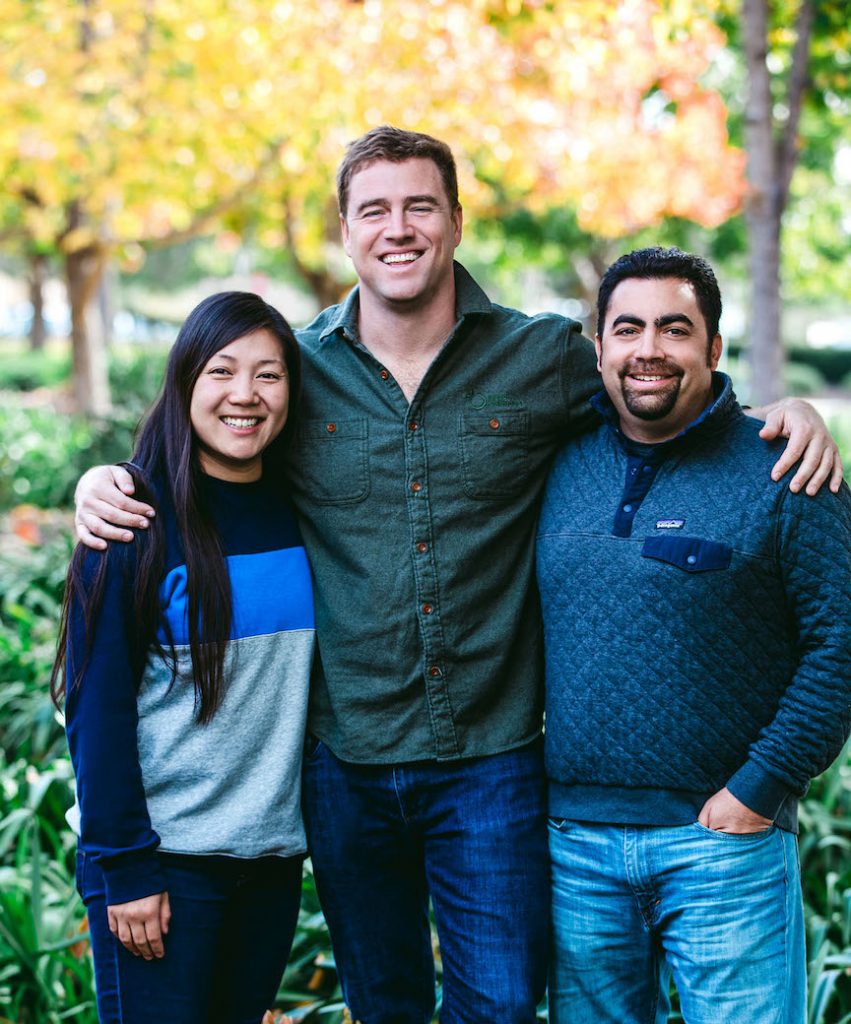Apeel CEO steps down, mission remains same
IN THIS ARTICLE
- Agribusiness Topic
- Jorge Mercado Author
By Jorge Mercado Wednesday, February 28th, 2024

When James Rogers founded Goleta-based Apeel Sciences in 2012, he believed the hardest part of steering the company would be finding new ways to coat each fruit to help the quality last longer and help eliminate food waste.
Turns out, the hardest part was finding a way to align the mission of the business while still commercializing the product and growing the company, he told the Business Times Feb. 27. And now that he feels comfortable Apeel has found a real balance between the two, Rogers is ready to take a step back.
“I’m so proud that we’re finally at the point now where the more of our plant-based solutions we get out there in the world, the more abundance we create. The commercial success of our business is finally aligned with the mission success of our business,” Rogers said.
Apeel announced on Feb. 26 that James Rogers will be stepping down from his title as CEO and that the company has appointed Luiz Beling to take over the position, effective immediately. Rogers will remain on the Apeel board and keep his role as founder of the company. Over the next few months, he will also be helping Beling adjust to the role.
Rogers said the company has been searching for a new CEO since the middle of 2023.
Beling brings over two decades of agriculture industry experience, most recently holding leadership roles at Farmer’s Business Network and Bayer Crop Science, where he led large teams across multiple geographies that accelerated business growth and increased customer satisfaction.
That was the number one thing that stuck out to Rogers in looking for a successor, “searching for someone who I can trust with our mission… that and collaboration. Those were non-negotiables.”
“We are in a phase of our business where the more successful we make our partners with our solution, the more abundance we create and the closer we get to accomplishing our mission and with Luiz, it was just so obvious that he had all the skills and experience to lead the company through that next phase of growth,” Rogers said.
Asked about the company’s commitment to Santa Barbara County despite his departure, Rogers said he doesn’t believe Apeel could have been started and grown so quickly anywhere else.
“The circumstances here were so unique and we saw firsthand what is possible to accomplish here when the community gets behind you,” Rogers said.
Apeel declined to share revenue or exact employee numbers, but Rogers stated that most of its employee base resides in the Santa Barbara office.
“We do all of our R&D work here, which is really the core of the business, so I see Apeel being a proud, proud resident of Santa Barbara for many more years to come.”
Rogers will also be sticking around the area for many years to come, aiming to continue to tackle the problems facing the county today with homelessness and food insecurity — both through his continued work at Apeel and possibly other ventures in the future.
“I do get excited about thinking about what it would be like to work with this community to start to address issues that are as important as the food system,” he said. “It’s been such a unique environment to have the opportunity to develop this business and I am just grateful to be able to call Santa Barbara home now and into the future.”
Apeel’s business has transitioned a bit over in the past year. Last year, Apeel inked its first agreement to license out its technology to fellow Central Coast agribusiness Limoneira.
In that process, Limoneira became Apeel’s first fully integrated lemon supplier in the U.S., significantly expanding the availability of Apeel-protected lemons domestically and internationally through Limoneira-affiliated packing facilities and through licensing management.
This means that if a large retailer, such as Walmart, specifically wanted lemons coated with Apeel, Limoneria would supply as much as it could. Moreover, Limoneira could also partner with growers all over the world who they see as a “good fit” and license the Apeel technology to them so they could coat all of their lemon products as well.
This is the way Apeel has learned to commercialize its business and find a way to try to coat every fruit in the world that it can.
“Apeel doesn’t want to learn how to be good in the lemon industry. They don’t want to learn all the ins and outs and get all the partners. They want us to be their lemon connection and go to market,” Harold Edwards, CEO of Limoneira, told the Business Times last year.
Rogers said the deal with Limoneira was “a pivotal moment for the business.”
“We learned that our partners knew better how to utilize our products than we did and that the Limoneira partnership was the first of many across the United States, South America and Europe that are employing the same model where we’re empowering our partners with these plant-based solutions so that they can use the time to benefit their businesses,” Rogers said, saying that Apeel has partnered with more than 50 businesses.
Looking back at his 12 years as CEO, Rogers said he is “extremely grateful” for the time and the incredible growth the company has seen. Now, the hope is that the mission continues and that one day almost every fruit available is coated with Apeel’s technology to help cut down on food waste.
“The world doesn’t have challenges because we don’t have solutions. The world has challenges because it’s very difficult for those solutions to be adopted. That’s the real work,” Rogers said. “Now after all this time, I have a much greater appreciation for all that’s involved in implementing solutions that can actually be both good for people and good for the planet at the same time.”
email: [email protected]








